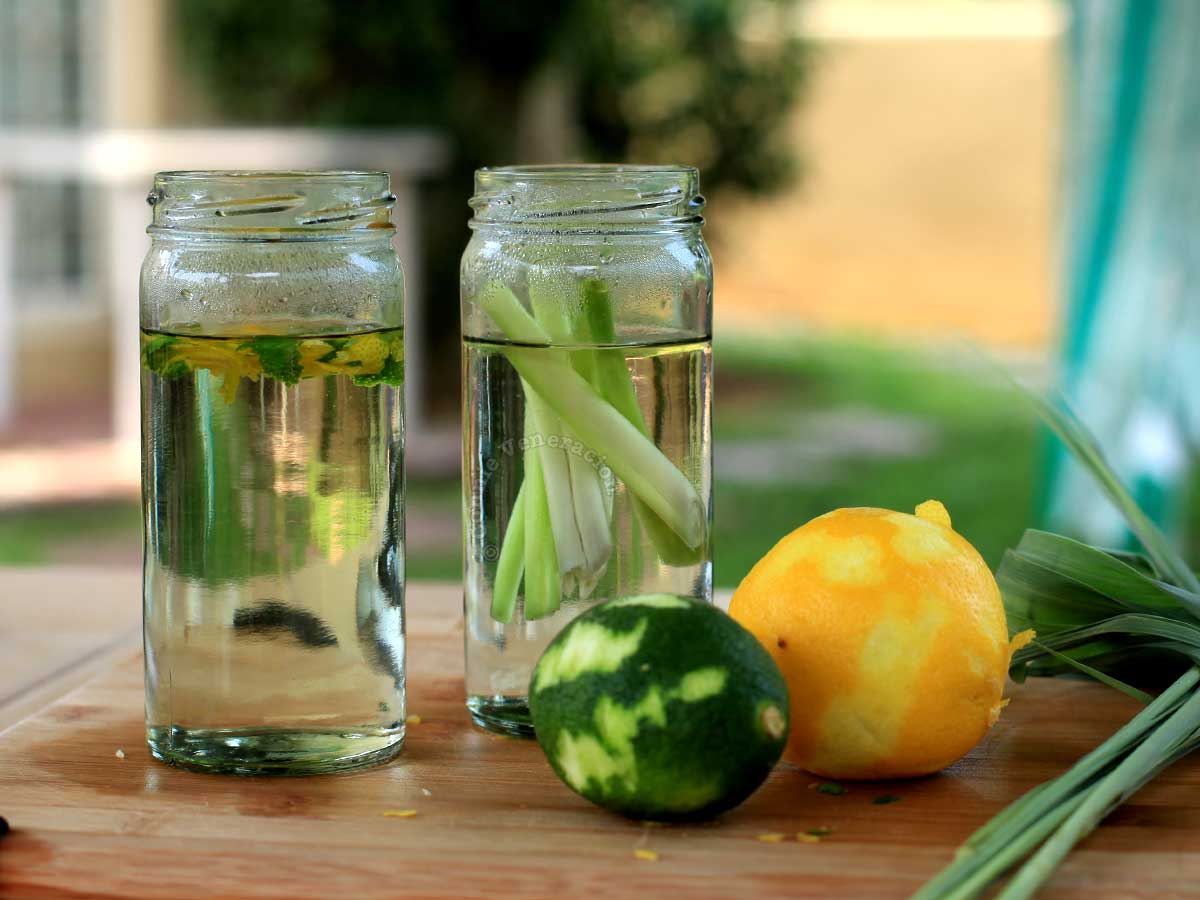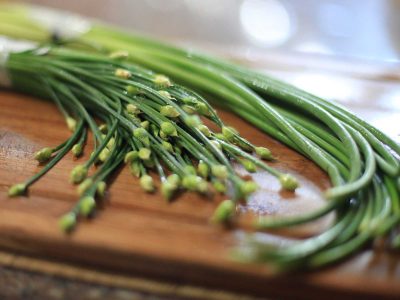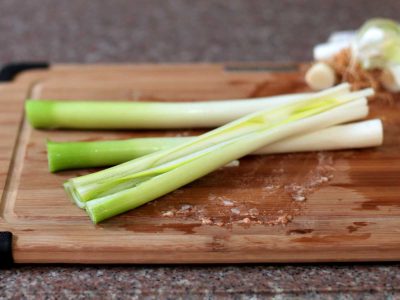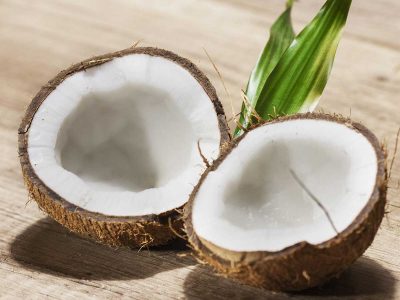Use citrus zest to make simple syrup
Simple syrup is a basic ingredient in many cocktail drinks. At its most basic, it is equal amounts of water and sugar boiled together until the sugar is dissolved.
Citrus fruits, especially lime, lemon and orange, are popular additions to cocktail drinks. Why not infuse your simple syrup with citrus zest to give your mixed drinks more of that citrusy aroma and flavor? Just drop the zest while making simple syrup, leave to infuse as the syrup cools, and voila!
Make lemon sugar
If you own a dehydrator (if not, use the oven but keep the temperature low), you can dehydrate the lemon zests then pulverize them in the food processor. Add to white sugar in a jar, screw in the cap, shake well and you have lemon sugar!
How do you use lemon sugar? If you sweeten your tea, add it to a hot cup of tea. You can use it for making iced tea too!
Drop citrus peels around the garden to keep cats away
Back when we still had cats (the last one died of old age and that’s a sad story I don’t like repeating), they used to make their beds in the troughs where herbs were planted.
Herbs are not sturdy things. The sheer weight of one cat can press herbs down into the soil and ruin the leaves that we use for cooking. I read somewhere that cats don’t like citrus so I started dropping citrus peels — with or without the zest — directly into the troughs.
It worked wonders. The cats didn’t go anywhere near the troughs. Apparently, they didn’t like the citrusy smell.
Add orange peels to vinegar-based household cleaner
If you’re trying to veer away from chemical-laden household cleaners and you’ve embraced vinegar-based alternatives, then, you probably also know how spraying vinegar on tiles and kitchen surfaces isn’t friendly to the nose. Yes, it stinks. Soften the sting of the vinegary smell with orange peels. Here’s how.
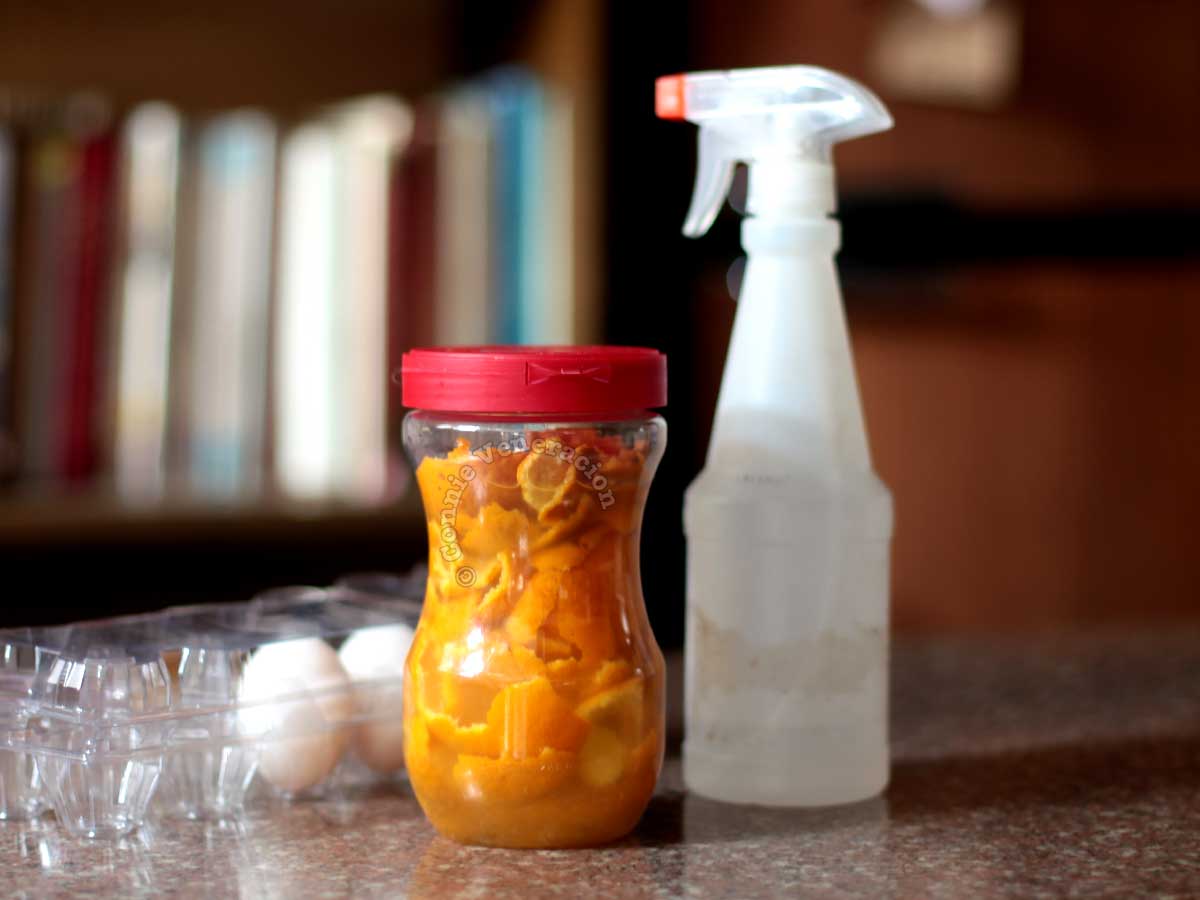
To make citrus peels work to remove the stink from vinegar, they need to soak in the vinegar for two weeks. And you need to use a lot of peels. In the photo, you’re seeing the peel of about ten oranges for a jar of vinegar. Leave it alone for two weeks, away from the sun, then strain. Dilute the strained vinegar with twice as much water, pour into a spray bottle and it’s ready to use.
Note that the vinegary smell will not be eliminated a hundred per cent. However, they will sufficiently remove the acidic edge that makes the nostrils flare in objection.
Make scented oil with citrus zest
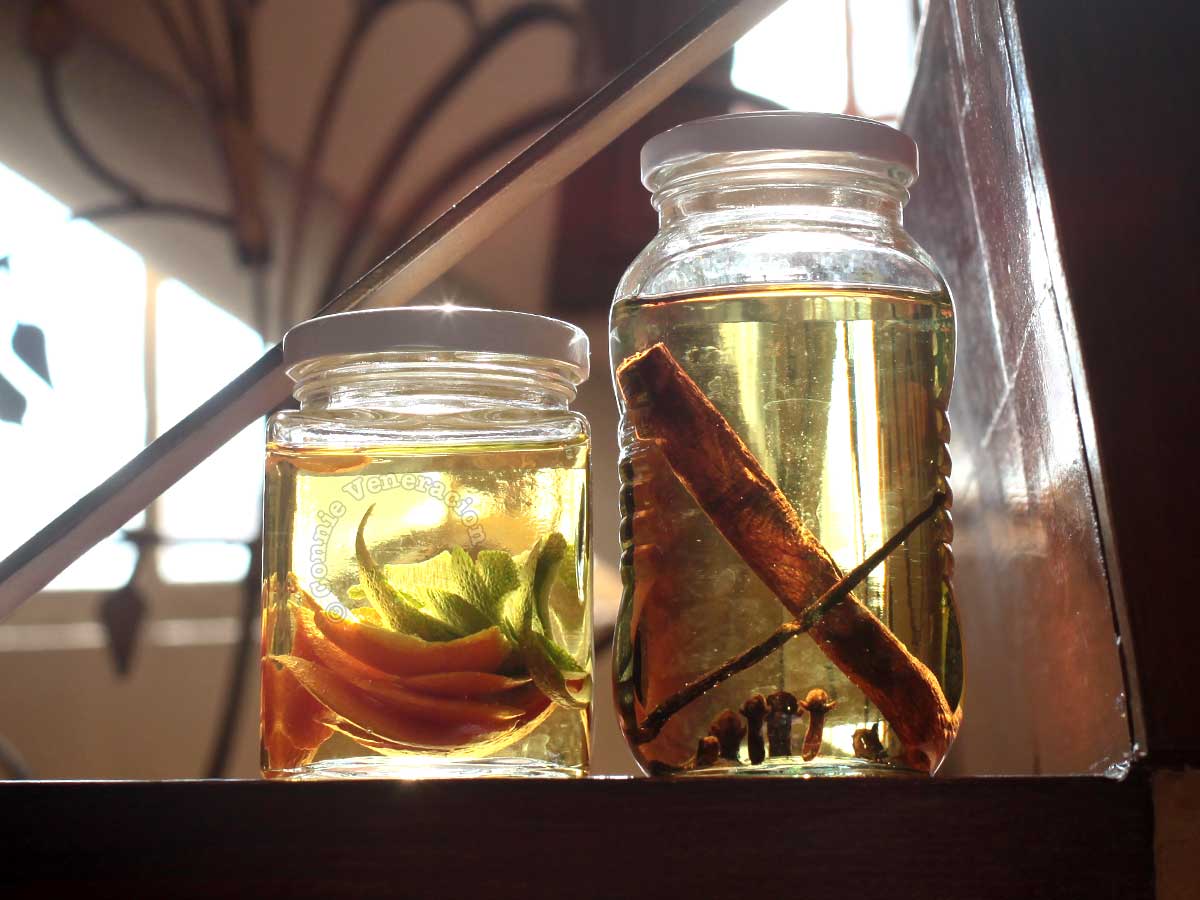
One time between Christmas and New Year, we had so much fruits and we ran out of ideas for using citrus zest in food. I made scented oil with the excess zest of limes, lemons and oranges. It took weeks but it did work with the reed oil diffuser.
More food uses for citrus peel and zest from around the web
1. Make lemon-pepper seasoning at home so you don’t have to pay for the exorbitant prices of branded stuff.
2. Make lemon extract (this is especially useful for baking cakes).
3. Make candied lemon peel.
More non-food uses for citrus peel and zest from around the web
1. “Citrus peel is a great addition to the compost pile. Just be sure to chop them a little to help them to degrade faster. You can use any of the peels to add to a compost pile. It will make the compost pile smell fresh and clean too…” —Wikihow
2. “Add orange peels to your garbage to keep bugs away (especially useful in outdoor situations, such as camping).” —Mother Nature Network
3. “Clean coffee pots: To a cool coffee pot, add lemon rinds, a few tablespoons of salt (as a mild abrasive), and a cup or two of ice. Swirl ingredients around in the coffee pot for several minutes, or until stains are completely removed.” —DIY Natural
4. “How to Kill Ants With Citrus Rinds” —SFGate

